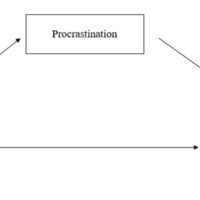Browse Exhibits (3 total)
Alexa Pellegrino | Associations Between Attachment Style, Reactive Aggression, and Emotion Regulation

Reactive aggression represents aggressive feelings and behaviors that are emotionally dysregulated, and thus are being expressed maladaptively (Card et al., 2008). Therefore, effective emotion regulation may be important for limiting reactive aggression (Daffern, & Bucks, 2012). Attachment styles predict who may act with more reactive aggression (Mikulincer et al., 2003). Hence, understanding the relationship and associations between adult attachment styles, emotion regulation abilities, and reactive aggression will allow clinicians to predict who will use problematic reactive aggression to target this aggression. These findings may inform and guide treatment and interventions by targeting emotion regulation skills and training to reduce these aggressive tendencies. The current study is designed to address the associations between: (1) emotion regulation and reactive aggression; (2) reactive aggression and adult attachment style; and (3) adult attachment style and emotion regulation.
Faculty Mentor: Dr. Thomas Holtgraves
Psychological Sciences
Graduate
Alexandra Doerner, Chloe Woodling, Elli Cole, Alexandria Epperly, Emma Dahlingaus | The Influence of Perseverance and Procrastination on Strategic Approaches to Learning

Grit is the perseverance and passion for long term goals (Duckworth et al., 2007). Perseverance has been linked self-regulated learning, lower levels of procrastination, and academic achievement (Wolters & Hussain, 2014; cite). Self-regulated learning, such as strategic learning approaches, has also been linked to better academic performance (Grøm Saele et al., 2017). In contrast, procrastination indicates a lack of self-regulation and is associated with poor academic performance. Therefore, it was hypothesized that first perseverance would predict higher strategic learning. The second hypothesis was procrastination would mediate the relationship between perseverance and strategic learning. College students (N= 127) completed the GRIT Scale, the ASSIST, and the Procrastination Scale. To investigate procrastination as a mediator of perseverance and strategic approaches to learning, a mediation analysis was conducted using PROCESS (Hayes, 2017). Gender was included as a covariate in the model due to past research (Voyer & Voyer, 2014), and significant relations to the dependent variables. The results supported the first hypothesis, perseverance significantly predicted strategic approaches to learning and accounted for 30% of the variance (R2 = .30, p < .01). The second hypothesis was also supported as procrastination partially mediated the relationship between perseverance and strategic approaches to learning based on significant indirect effects (ab = 1.14, BCa CI [.38, 2.11], where lower procrastination levels explained the relationship between higher perseverance and greater strategic learning. These results will be discussed in relation to college students’ academic performance and potential interventions for academic success.
Faculty Mentor: Anjolii Diaz
Psychological Sciences
Undergraduate/Graduate
Krista Price | Mindfulness Influences on Information Transfer Between Hemispheres
Extensive research has investigated how mindfulness impacts cognition and well-being. However, there has been no research that has looked at how mindfulness may influence how we process information. Global and Local processing is a cognitive function that helps individuals perceive and conceptualize the world. The current study is a pilot study to establish a trend in mindfulness and Global and Local processing. Participants will be tasked to listen to a 12-minute mindfulness meditation audio, then will then perform the Navon letter task which assesses accuracy for engaging in Global and Local processing.
Faculty Mentor: Thomas Holtgraves
Department of Psychological Science
Graduate
